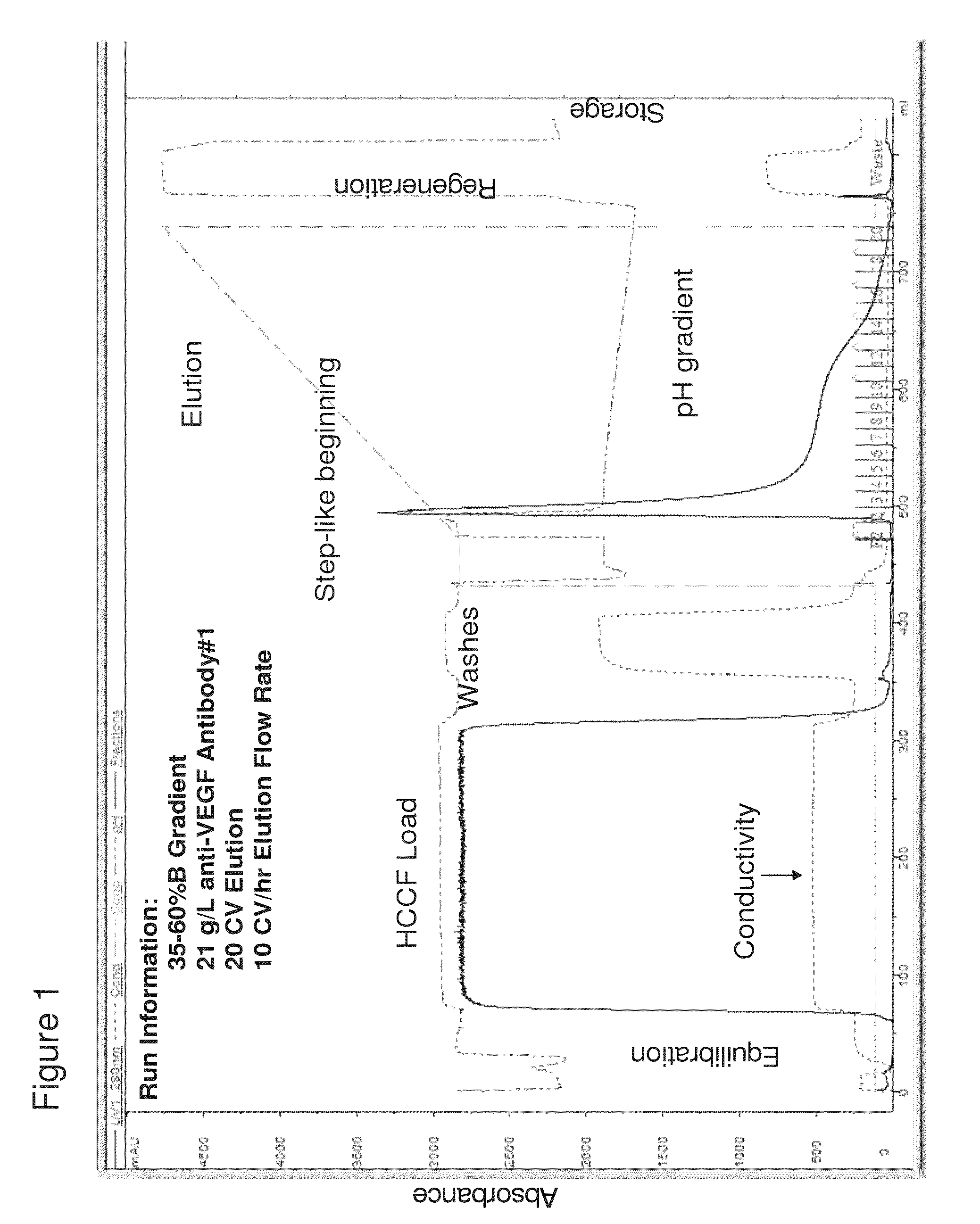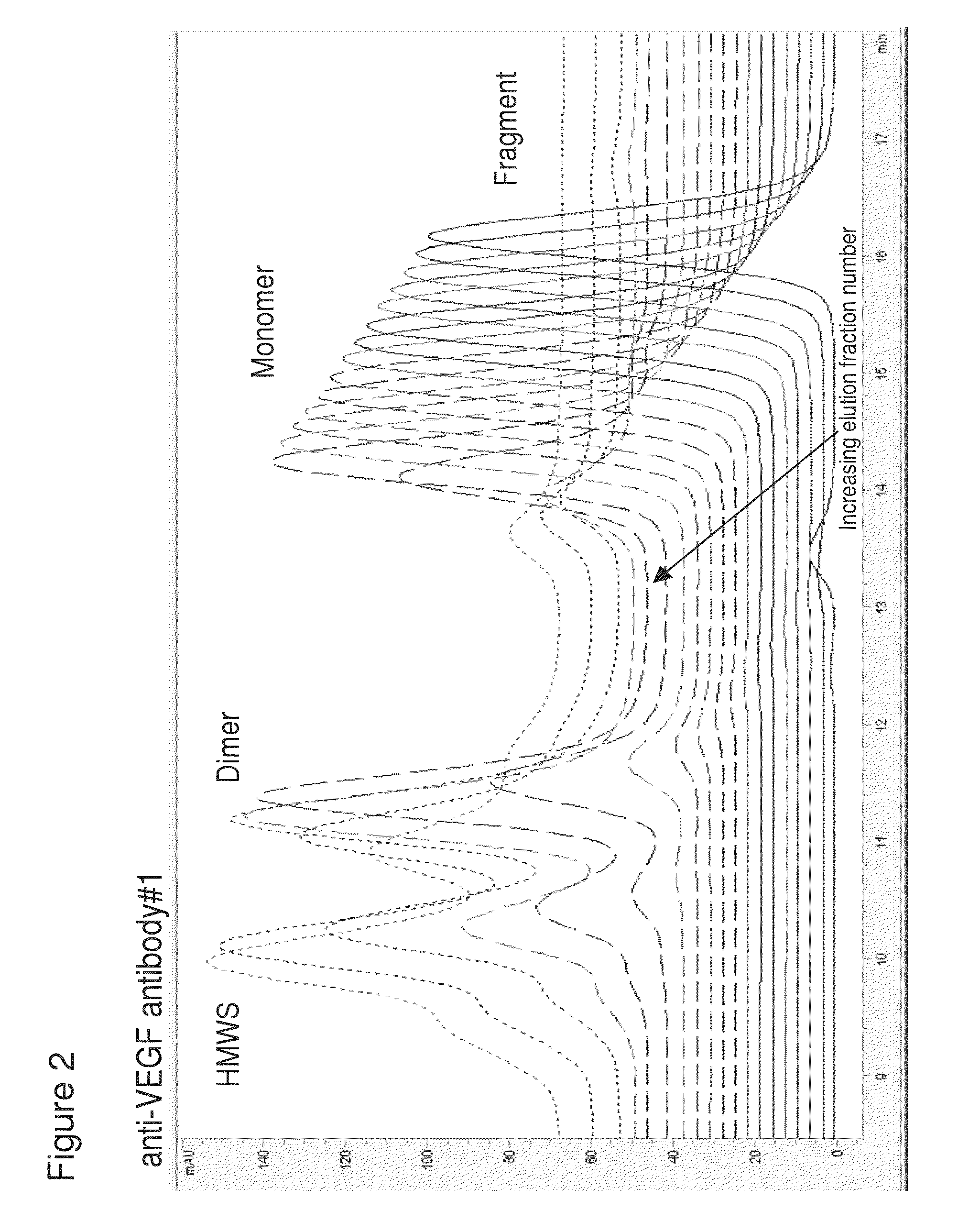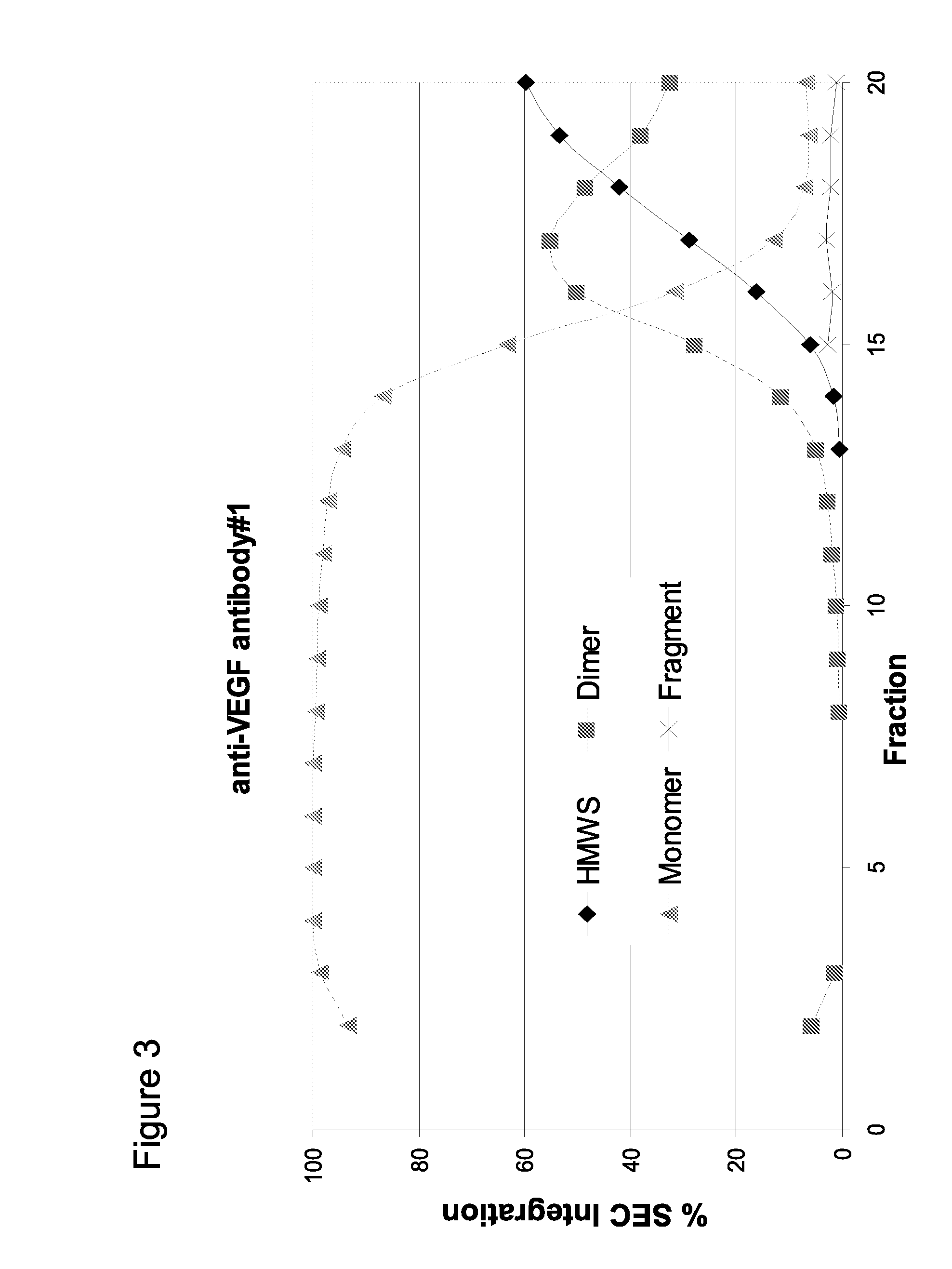Enhanced protein purification through a modified protein a elution
a technology of enhanced protein and purification method, which is applied in the field of purification methods of polypeptides, can solve the problems of difficult removal of subcellular fragments, long processing time and higher cost, and the use of human therapeutics is a formidable challenge, so as to facilitate the utilization of alternative downstream purification technologies, facilitate the sequential separation of polypeptides, and improve the purity of desirable polypeptide monomers
- Summary
- Abstract
- Description
- Claims
- Application Information
AI Technical Summary
Benefits of technology
Problems solved by technology
Method used
Image
Examples
example 1
pH Gradient Elution Protein A Chromatography
[0217]Six different proteins containing the CH2 / CH3 regions, anti-VEGF antibody #1, anti-CD20 antibody, anti-VEGF antibody #2, anti-MUC16 antibody, anti-CD4 antibody, and an armed anti-Met antibody were purified using a pH step-gradient elution method on a Protein A chromatography column. The method is outlined in Table 1.
TABLE 1Run PhaseSpecificsColumn EquilibrationTris buffer, pH 7Protein LoadPrefiltered HCCF, 14-37 g / LWashesVarious bufferspH Step Gradient ElutionpH Gradient: 35-60% B; A: Acetate,pH 5.0 / B: Formate, pH 2.7Column RegenerationNaOHColumn StorageBenzyl alcohol and acetate storagebuffer
Experimental Procedures
[0218]A Unicorn method file was constructed using the protein load and buffer composition / pH parameters as listed in Table 1. This file was executed by a GE Healthcare AKTA (GE Healthcare) Explorer FPLC (Fast Protein Liquid Chromatography) system. FPLC was a bench-scale instrument made of plastic piping and pumps that simu...
example 2
CHOP Separation for Anti-CD20 Antibody, Anti-VEGF Antibody #1, and Anti-MUC16 Antibody over a Protein A Chromatography Column Using a Standard Step Elution and a pH Step-Gradient Elution
[0226]Using the method of pH step-gradient elution protein as described in Example 1, the anti-CD20 antibody levels per fraction in mg / mL (from the bench top offline UV 280 absorbance, which tracked with the online AKTA / Unicorn UV 280 readings for the step-gradient elution phase as seen on the anti-VEGF antibody #1 chromatogram in FIG. 1A) and the CHOP levels per fraction in ppm were measured. As seen in the left panel of FIG. 5 (anti-CD20 antibody and CHOP elution), the later fractions at lower pH of the pH step-gradient elution contained very little anti-CD20 antibody compared to the amount of CHOP. Data from the control run done at the same time as the anti-CD20 antibody step-gradient pH elution is shown in the top row of the table in FIG. 5. Control run was using the same conditions as described ...
example 3
Virus Particle Clearance Using pH Gradient Elution Protein A Chromatography
[0228]Using the method of pH step-gradient elution protein A chromatography as described in Example 1, the virus particle clearance of anti-VEGF antibody #1 was measured.
Step-Gradient pH Elution Protein A Chromatography
[0229]All phases and buffers were the same as those used in Example 1. Fractions were tested for retrovirus-like particle counts using a quantitative polymerase chain reaction assay.
a. Retrovirus-Like Particle Quantitative Polymerase Chain Reaction (RVLP QPCR) Assay
[0230]The RVLP endogenous virus particle assay is a real-time quantitative PCR assay. Viral RNA was extracted from samples using Qiagen EZ1 (Qiagen, Valencia, Calif.). Sample sizes were 0.4 mL (undiluted and 1:10 diluted HCCF, undiluted protein A pool). Extraction efficiency was confirmed by including a reference standard HCCF sample with a known CHO retrovirus particle titer. Genomic DNA was removed by DNase digestions by treating t...
PUM
 Login to View More
Login to View More Abstract
Description
Claims
Application Information
 Login to View More
Login to View More - R&D
- Intellectual Property
- Life Sciences
- Materials
- Tech Scout
- Unparalleled Data Quality
- Higher Quality Content
- 60% Fewer Hallucinations
Browse by: Latest US Patents, China's latest patents, Technical Efficacy Thesaurus, Application Domain, Technology Topic, Popular Technical Reports.
© 2025 PatSnap. All rights reserved.Legal|Privacy policy|Modern Slavery Act Transparency Statement|Sitemap|About US| Contact US: help@patsnap.com



